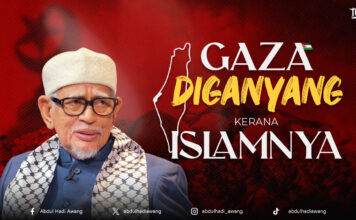End of June 2022, a Panel of Independent International Experts (the Panel), consisting of three renowned international law experts, including Sonja Biserko, Marzuki Darusman and Stephen Rapp, launched their report on serious human rights violations against Muslims in India since 2019.
The Panel found that there is credible evidence to suggest that a wide range of international human rights of Muslim communities have been violated by the authorities in India. According to the evidence reviewed, federal and state-level authorities “adopted a wide range of laws, policies and conduct that target Muslims directly or affect them disproportionately.”
In relation to violations perpetrated by non-state actors, the State failed to take the necessary measures to prevent the acts, effectively investigate and prosecute them. The Panel further found that some of the violations may amount to crimes against humanity, war crimes and incitement to commit genocide.
The Panel was established to review available evidence and determine whether there was sufficient credible information to require an independent international investigation into the situation of Muslims in India. The Panel reviewed reputable sources for information, including reports of independent media, civil society organizations and academic institutions.
The Panel found credible evidence to suggest that several human rights are being perpetrated against Muslims throughout India, and especially in Assam, Delhi, Jammu and Kashmir and Uttar Pradesh, including “arbitrary deprivation of life, arbitrary detentions, torture and cruel, inhuman or degrading treatment, gender-based violence and discrimination, incitement to discrimination, hostility and violence, discrimination in laws and policies, including to nationality and representation, violations of freedom of religion or belief, violation of freedom of expression, association, assembly, violations of right to fair trial, and violation of economic, social and cultural rights.”
The Panel found that the following incidents may amount to crimes against humanity, as defined in the Rome Statute of the International Criminal Court: “the crack-down on protests against the Citizenship Amendment Act (December 2019 – June 2020) in Uttar Pradesh” and “the repressive actions by the government against human rights defenders, journalists and activists in Jammu and Kashmir following the change of its special autonomous status in August 2019.”
The Panel stated that the killings and torture of civilians in the ongoing non-international armed conflict in Jammu and Kashmir may amount to war crimes.
Lastly, the Panel identified that a number of public speeches made by prominent political or religious leaders in Delhi, Chattisgarh, Uttarakhand and Uttar Pradesh between December 2019 and April 2022, calling on their audience to kill Muslims or rape Muslim women and girls, may amount to direct and public incitement to commit genocide.
According to the Panel, “some leaders [made] clear references to eradication or elimination or destruction of the religious community from the nation.” The Panel emphasized that such statements warrant further investigation by an independent body. Furthermore, urgent action is required to prevent repetition of such incidents.
The Panel found that most of the abuses and violations have remained unaddressed by domestic institutions, leaving victims with no effective remedy. No steps have been taken to investigate and prosecute the perpetrators, allowing impunity to flourish.
The Panel called upon the U.N. Human Rights Council to establish an independent fact-finding body to investigate human rights violations against Muslims in India and a territorial mandate of Special Rapporteur on religious minorities in India. It further called upon the Government of India to amend the Citizenship Amendment Act 2019, to remove discriminatory provisions, and to ensure effective, independent and impartial investigations of the atrocities, among others. Lastly, the Panel called upon social media companies to take proactive steps against hate speech, and among others, launch early warning system to protect vulnerable minorities.













